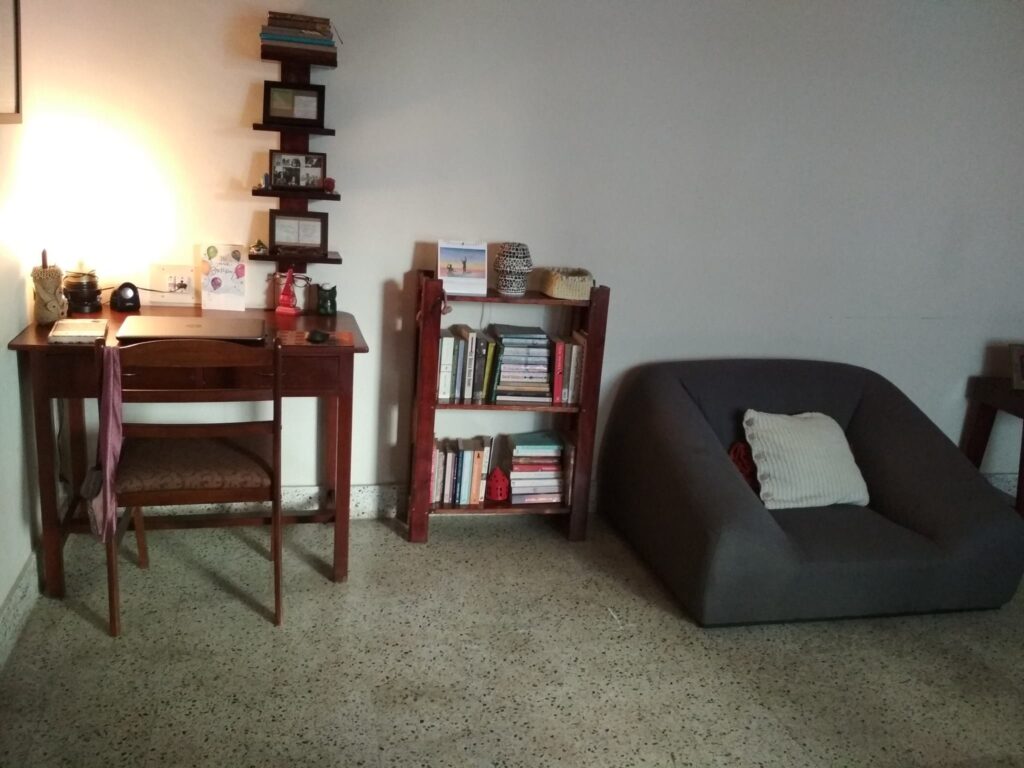I came into this quite by chance: a friend, who was writing a book of short stories, asked me to take a look at them after I had earned my MFA in Creative Writing from the University of San Francisco. He had already self-published a novel, and was navigating the short story territory. Which was akin to but a full 180-turn from my own experience with writing fiction. For my MFA, I had chosen to wade into the short story form for the first three semesters of the writing program at USF, but for the third term’s final workshop, I submitted a story that had begun as a short story, kept developing, and had become a novella that seemed intent on developing further still. Like a wise professor once told me: the form of a piece chooses itself.
This began a final term of writing into the novella, expanding it into a full-length novel, and submitting it as my thesis to graduate from the program. This piece will likely never see the light of day (it’s too self-indulgent, I’ll readily admit, but parts of it will emerge – some of my best writing is in it), but what it taught me was that if the act of putting your butt in a chair to write a piece of work is a radical act, it stands no chance in front of the story that chooses, nay, demands to tell itself as it will. And what helped me stay that course was workshopping, in MFA-speak, in which a community of writers ask questions of other writers to help them plug gaps in their work so that what emerges from that is a solid narrative that shines as a single, cohesive piece.
During the last year of my MFA program, I met a celebrated poet in the city by the bay. He needed help with piecing his anthology of poems together into a manuscript. He had met with an accident recently owing to which he was unable to do it himself, and I was looking to immerse in language outside of grad school because that experience was, sadly, winding down. What better than poetry, right, to fill gaps that prose often leaves behind? Two of the most magical months of my life, where our daily communication was about, in, and devoted to poetry.
All this to say that writing is just one aspect of a writer’s life and aspirations. First-time (and new) writers are usually in love with their work so much so that they are not usually objective about it. This is summed up in one line (attributed to many authors): Kill your darlings, kill your darlings, kill your darlings. Which means, get rid of those long passages and parts of your writing that you are in love with. John Steinbeck said to write for an audience of one. And Thomas Mann once said that a writer is somebody for whom writing is more difficult than it is for other people (my personal favourite quote, this).
The stage of writing, where you fall in love with your writing, (known to us MFA-ers as the dreaded first draft) but you don’t really know why, is essentially the writer telling themselves the story. A finished piece of work (known to us MFA-ers as the seventh or eighth or ninth or millionth draft) fulfils the readability aspect of the narrative, which is where the craft of writing – rewriting, editing, revising – comes in. That journey, from writing shaky exposition to crafting a solid story and weaving characters, plot, language together into a piece with literary merit, one that coalesces into a readable narrative, is something that needs readers before the final piece of work is ready for the world.
And in a world where traditional publishing has had to make way for the independent-minded, social media-savvy writer who can write and market their own work, I realized this is something I want to do: be the objective but nurturing reader, who, with editing skills honed in the newsroom and narrative crafting skills learned in the creative writing classroom, can help an author polish their work – through close attention to craft, narrative, and voice – and help them achieve their personal goals of publishing their work as ready-for-the-world books.
As part of the editing process, I love the new truths that emerge about not just the book we are collaborating on, but also about the artistic process itself. So far, I have worked on the aforementioned anthology of poems, three non-fiction books: memoir one (link soon!), memoir two, and a book of essays, a short story collection, and a novel with an interweaving plotline set in the 21st century that spans different cultures from ancient times. Currently, I am editing a novel about generational conflict set in the Dust Bowl era in California. If you would like to explore how we can work together to get your book world-ready, get in touch: sumareads@gmail.com.
I am eager to read your book.



